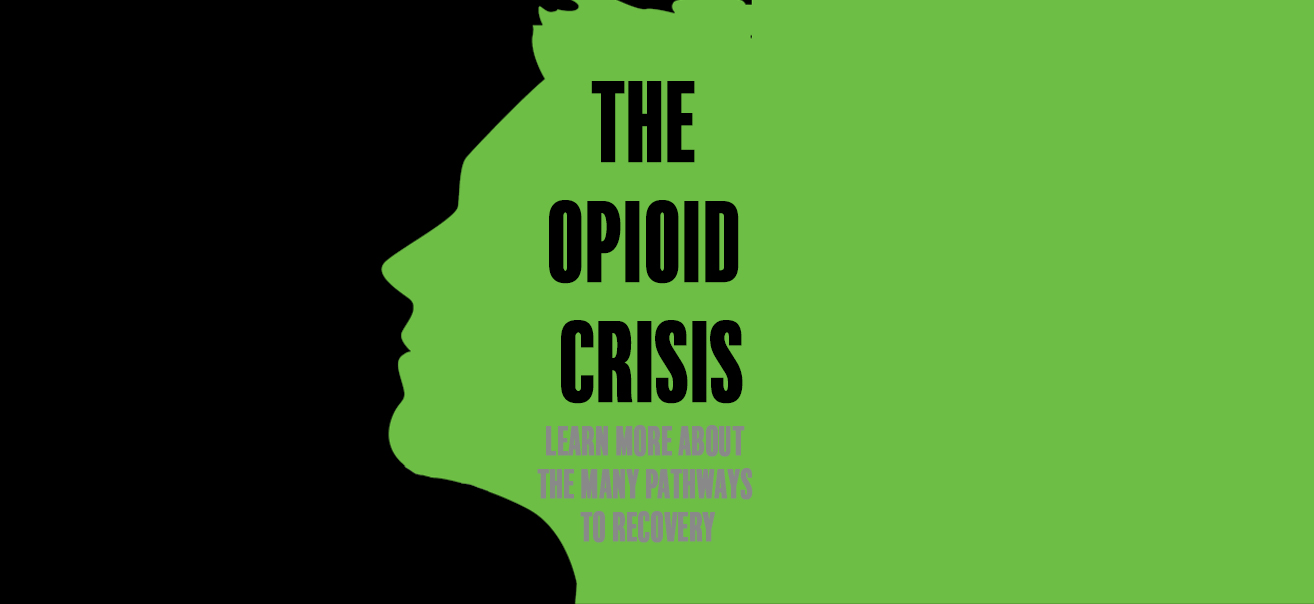
Bemidji State University’s Student Center for Health and Counseling is sponsoring a Nov. 6 panel covering aspects of the nation’s current opioid addiction epidemic.
The panel, entitled “The Opioid Crisis: Learn More About the Many Pathways to Recovery,” will be held at 8 p.m. in Hagg-Sauer Hall room 100.
The panel will be led by Margot Kelsey, Bemidji local and opioid treatment specialist, who will share information on opiate, alcohol and other drug addictions along with treatment options.
“Addiction services should be geared at making the client well. Addiction is not a choice, but recovery is,” said Kelsey. “Helping sick people get well should be our priority. It is not a moral failing, it is a disease.”
Additional members of the panel include Travis Carlson, Sgt. Robert Billings and Patty Bittner.
Bemidji resident Travis Carlson, a nationally-registered emergency medical technician who has experience working in cities large and small and on Indian reservations, will provide an overview of Narcan and how to use it. Narcan, a medication used to block the effects of opioids, especially in overdose, was developed to allow first responders, family, friends and caregivers to immediately respond to an overdose, but is not a substitute for emergency medical care. Carlson currently works as an EMS Training Center Coordinator for the Leech Lake Band of Ojibwe’s Emergency Medical Services Division. He is a licensed Minnesota Peace Officer who holds numerous emergency medicine certifications and a degree in criminal justice/public safety.
Sgt. Robert Billings, commander of the Paul Bunyan Drug Task Force (PBDTF), will discuss the opioid crisis and drug violations from a law enforcement standpoint. The PBDTF was started in 1988 under the supervision of the Minnesota Bureau of Criminal Apprehension. In 2015, Beltrami County, the Bureau of Indian Affairs, Clearwater County, Hubbard County, the Leech Lake Tribal Nation, Mahnomen County, White Earth Tribal Nation, the City of Park Rapids and the City of Bemidji comprised the Paul Bunyan Drug Task Force. There are currently 13 full-time narcotics agents assigned to PBDTF.
Patty Bittner, methamphetamine community coordinator for the Leech Lake Tribal Police, will talk about methamphetamine use in Northern Minnesota. The Leech Lake Tribal Police Department was established in 1999 to enforce civil regulations among the Leech Lake Band of Ojibwe and four surrounding counties including Beltrami, Hubbard, Cass and Itasca Counties, the City of Cass Lake and the State of Minnesota.
The panel is sponsored by Leech Lake EMS, Indian Health Services, the Rural AIDS Action Network and FaceIt Together-Bemidji.
Calendar
Nov. 6 – 8 p.m. – “The Opioid Crisis: Learn More About the Many Pathways to Recovery,” a free panel talking about strategies for responding to persons who overdose on opioids, with resources for addressing addiction and recovery, moderated by Margot Kelsey. Location: Hagg-Sauer Hall 100 (8 p.m. session), BSU campus. Admission: free. Information: Jay Passa, (218) 755-2080, jpassa@bemidjistate.edu
Contact
- Jay Passa, health education coordinator, Bemidji State University Student Center for Health and Counseling; (218) 755-2080, jpassa@bemidjistate.edu
Links
 Bemidji State University, located amid the lakes and forests of northern Minnesota, occupies a wooded campus along the shore of Lake Bemidji. Enrolling more than 5,100 students, Bemidji State offers more than 80 undergraduate majors and eight graduate degrees encompassing arts, sciences and select professional programs. BSU is a member of the Minnesota State system of colleges and universities and has a faculty and staff of more than 550. The university’s Shared Fundamental Values include environmental stewardship, civic engagement and international and multicultural understanding.
Bemidji State University, located amid the lakes and forests of northern Minnesota, occupies a wooded campus along the shore of Lake Bemidji. Enrolling more than 5,100 students, Bemidji State offers more than 80 undergraduate majors and eight graduate degrees encompassing arts, sciences and select professional programs. BSU is a member of the Minnesota State system of colleges and universities and has a faculty and staff of more than 550. The university’s Shared Fundamental Values include environmental stewardship, civic engagement and international and multicultural understanding.
